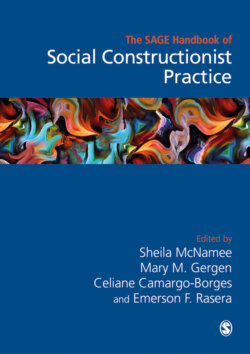Читать книгу The Sage Handbook of Social Constructionist Practice - Группа авторов - Страница 77
На сайте Литреса книга снята с продажи.
Performative Inquiry: Emergence and Development
ОглавлениеOne might legitimately trace the origins of performative studies to the publication in 1632 of Galileo's Dialogue concerning the two chief world systems. In this volume, Galileo effectively justifies his Copernican view of the universe, that the earth revolves around the sun. In this account, however, he draws from the full range of rhetorical devices available at the time: formal scientific articulation, irony, drama, comedy, sarcasm, and poetry among them. By rolling his manifesto into this rich mix of genres, and the like, Galileo was able to give voice to his view of the cosmos, while simultaneously protecting himself from the ire of the Pope and the Catholic Church, for which his views would be anathema.
Over the next three centuries, Galileo's research came to be a centerpiece in the emergence of a self-conscious empiricist science. However, the all-important rhetorical devices had grown into discredit, now regarded as ‘bells and whistles’ as opposed to carrying real objective substance. Science, it was said, was engaged in the pursuit of literal as opposed to rhetorical truth. This was indeed the received view within the burgeoning social sciences of the 20th century. The hope of many scholars was that the study of social life would constitute a science with a status approximating the natural sciences. Such research might provide the scientific basis for generating effective institutions of education, commerce, and governance; they might lead the way in eradicating poverty, mental illness and other social problems. The effort to create and sustain this dream of the social sciences as kin to the natural sciences remains dominant in psychology, sociology, and economics, especially.
